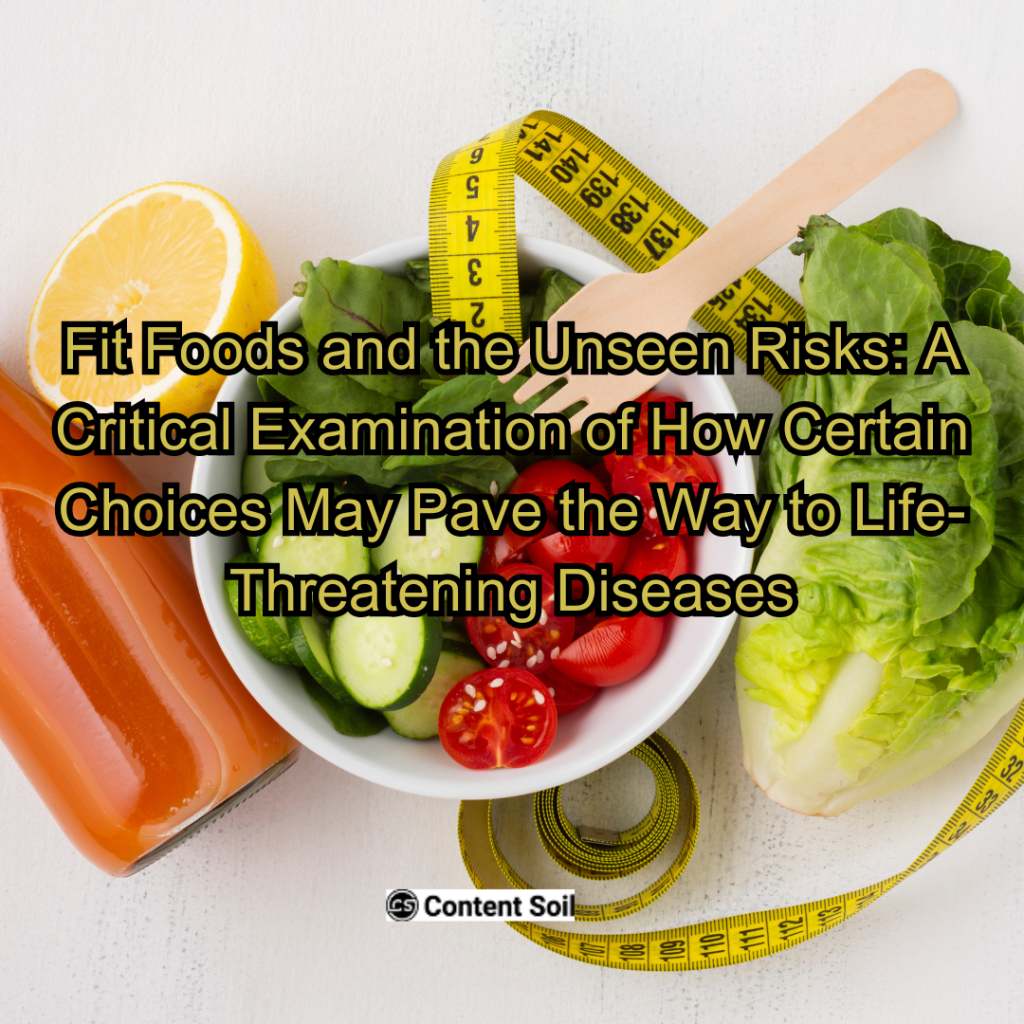Introduction:
In the quest for a healthier lifestyle, many individuals turn to “fit foods” with the belief that these choices will lead to improved well-being and reduced risks of diseases. However, a closer look at some of these seemingly health-conscious options reveals potential pitfalls that could, counterintuitively, invite life-threatening diseases. This article aims to delve into the hidden dangers of certain fit foods and explore the ways in which they may inadvertently contribute to the development of serious health issues.
Excessive Use of Refined Sugar:
Fit foods, especially those marketed as energy bars, protein snacks, or even smoothies, often hide a significant amount of refined sugars. These items, even though they bear the labels “fit” or “healthy,” may raise the risk of serious conditions like type 2 diabetes, cardiovascular disease, and obesity. Consuming too much sugar has been connected to metabolic dysfunction, insulin resistance, and inflammation, all of which can lead to the emergence of serious health issues.
Artificial Additives and Preservatives:
Many fit foods, particularly those with extended shelf lives or enhanced flavors, contain a myriad of artificial additives and preservatives. These chemical compounds may help prolong the product’s freshness, but they can pose health risks. Some individuals may experience adverse reactions to these additives, ranging from mild allergic responses to severe complications. Prolonged exposure to such synthetic substances may contribute to chronic diseases and even compromise the body’s immune system over time.
High Sodium Content:
In the pursuit of enhancing taste and preserving the product, fit foods often contain elevated levels of sodium. Excessive sodium intake has been associated with hypertension, a major risk factor for heart disease and stroke. Consuming these seemingly healthy options without being mindful of their sodium content may contribute to the development of life-threatening cardiovascular conditions, highlighting the importance of scrutinizing nutritional labels.
Imbalance in Nutrient Composition:
While fit foods may boast about being rich in certain nutrients, they might lack the overall balance necessary for optimal health. For instance, some protein bars may contain high levels of protein but insufficient amounts of essential vitamins and minerals. This imbalance can result in malnutrition, weakened immunity, and increased susceptibility to a number of potentially fatal illnesses.
Overemphasis on Protein:
Since protein is necessary for both maintaining general health and gaining muscle, it must be a part of a balanced diet.However, some fit foods, such drinks and supplements, may have unexpected repercussions due to their overemphasis on protein. Consuming an excess of protein can strain the kidneys, potentially leading to kidney diseases, while certain protein supplements may contain contaminants that pose additional health risks.
Hidden Trans Fats:
Fit foods often position themselves as low-fat or fat-free options, but this claim can be misleading. Some products replace natural fats with trans fats or hydrogenated oils to enhance flavor and texture. Trans fats are well-known contributors to heart disease, increasing levels of LDL cholesterol while decreasing HDL cholesterol. Regular consumption of foods rich in hidden trans fats can elevate the risk of life-threatening cardiovascular issues.
Inadequate Fiber Content:
While some fit foods focus on specific nutritional components like protein, they may neglect the importance of dietary fiber. Inadequate fiber intake is associated with an increased risk of conditions such as colorectal cancer, diabetes, and heart disease. Fit foods that lack sufficient fiber content may contribute to digestive issues and compromise long-term health.
Unregulated Supplements and Performance Enhancers:
Certain fit foods include supplements and performance enhancers that are not rigorously regulated. Athletes and fitness enthusiasts often turn to these products to boost their performance, unaware of potential risks. Some supplements may contain banned substances or untested substances that, over time, may have harmful effects on the body and cause potentially fatal problems.
Conclusion:
While the intention behind choosing fit foods is often rooted in the desire for a healthier lifestyle, it is essential to approach these options with a critical eye. The hidden risks associated with some fit foods, including excessive refined sugars, artificial additives, high sodium content, nutrient imbalances, overemphasis on protein, hidden trans fats, inadequate fiber, and unregulated supplements, underscore the importance of informed decision-making.
To truly prioritize health and well-being, consumers must be vigilant about reading nutritional labels, understanding the potential risks associated with certain ingredients, and considering the overall nutritional profile of their chosen fit foods.


